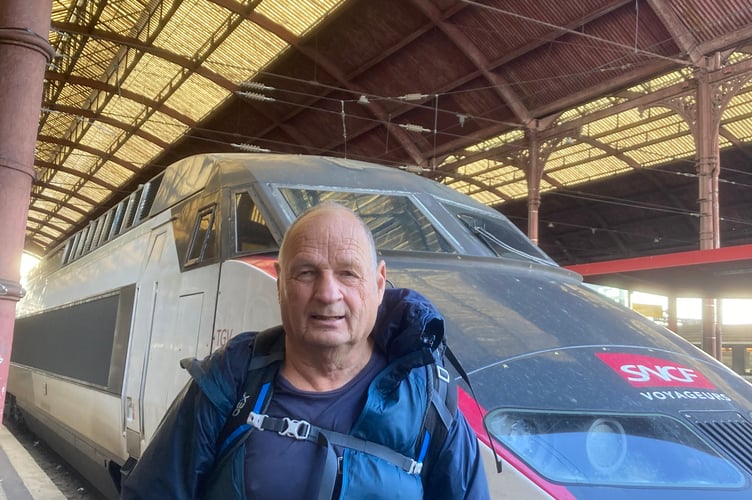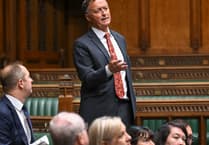I DELAYED the start of my recent holiday to attend the scrutiny committee of Cornwall Council which looked at climate change.
In 2019, I watched as a member of the public when Cornwall Council declared a climate emergency. Since then, initially under the leadership of the late Councillor Edwina Hannaford, the council has strived to reduce its emissions, by encouraging the use of public transport and replacing its own pool cars with electric vehicles, installing solar panels and planting trees.
The report we considered recognised that Cornwall Council operations would only meet Net Zero by 2040, as a decision has been made not to use carbon offsets. Cornwall as a whole is due to meet Net Zero by 2045, still five years ahead of the national target.
Reform UK members at the meeting challenged the science around climate change, but were subsequently out-voted. They do not seem to realise the economic benefits that renewable energy brings to Cornwall – and the risks facing Cornwall’s coastal communities from climate change.
I know my wife and I are lucky to be able to afford a holiday abroad, but we are also able to work in our retirement to afford to travel.
Most people know I got into politics as a result of being affected by organophosphate poisoning from sheep dip, but as I also find airports stressful, as well as not wanting to risk aerotoxic syndrome from pressurised airplane cabins, we travelled by train and ferry.
Whilst at Strasbourg station we shared a table with officers who support the Portuguese members of the European Parliament. They said there is still a feeling of regret that the UK has left the European Union, but relationships are now improving. Since Brexit and Covid there is much less talk about other countries leaving the EU, as they realise the benefits of co-operation, and realise a more fragmented Europe suits both Putin and Trump.
When we first visited our friends in Greece in 2007, the mountain ridges were bristling with radar posts checking for invasion from the east, but this technology has now been replaced by satellites. Now wind turbines on the mountains supplement supplies of hydroelectric power.
Also, we learnt that Greece has emerged as a global leader in renewable energy, ranking seventh worldwide in the contribution of wind and solar farms to electricity generation, and significant reductions in carbon dioxide emissions. It was a good reminder that we all need to take climate change seriously, as we only have one planet.
We returned home to learn that five Cornwall councillors elected as members of Reform have left the party and now formed their own independent group. Many Reform councillors were elected as a protest vote against Labour and the Tories, promoting national policies of global isolation and climate change denial.
However, a recent survey shows that 84 per cent of Cornwall’s residents rate concerns about climate change as a priority, so it’s good those five are now recognising they have to look after their residents and act in the best interests of Cornwall.





Comments
This article has no comments yet. Be the first to leave a comment.